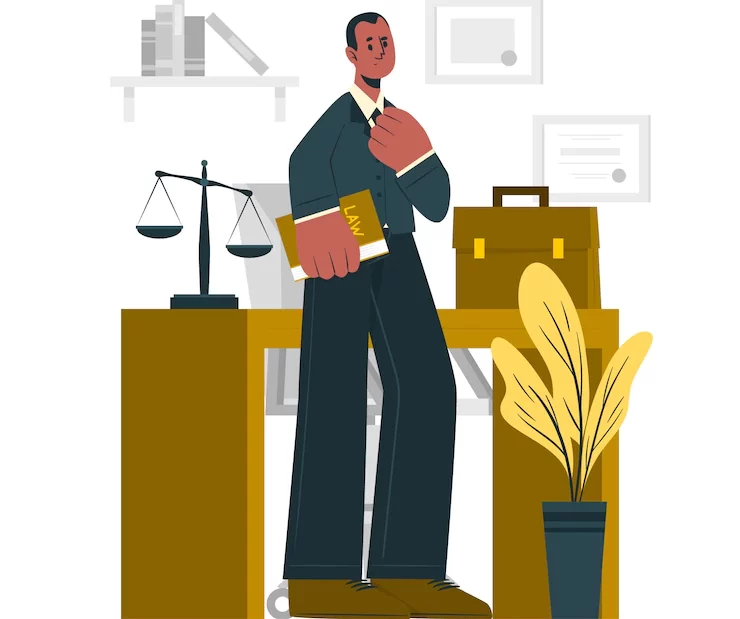Define: Wills, Trusts, and Estates Law
Wills are legal documents that include information about your intended beneficiaries and which entity will benefit from a third party’s death. People write wills when they want to make sure their property is given to the people they wish without any other family members or friends competing over it. An estate is any property that a person owns at the time of his/her death. Trusts are legal documents that can be used to control the distribution of an estate and protect your assets from creditors before and after death.
There are two types of trusts, revocable and irrevocable. A revocable trust is a trust in which you retain ownership of your property during your lifetime. An irrevocable trust gives you a way to give up ownership and control over the property in exchange for tax advantages or other financial benefits.
What Are Will Settlements?
In the United States, courts are often required to settle disputes that arise due to Will contests. The courts will determine whether the deceased’s Will is valid or not. If a Will is legally valid, then it is considered a “Will settlement.” A Will settlement does not include any disputes about the legitimacy of a specific heir. The courts will only review a deceased individual’s Will in terms of its legality and validity. The law that governs Wills and settles disputes concerning Wills is called wills and trusts law.
State laws governing Wills and settling disputes concerning Wills differ greatly. For example, some states have a ” probate” system of distributing an estate, while others have a “probate-by-representation” system that avoids probate by using an executor to manage the estate without actually holding title to the property.
What Types of Will Settlement Procedures Exist?
An Executor is an individual named in a Will to take possession of the deceased’s property after his/her death. If there is no Executor named, then the court will appoint one. The Executor is responsible for settling any disputes over the Will. In most states, if a Will has been challenged successfully in court, then the Executor will be responsible for distributing the assets according to either another valid WIll or under intestacy laws.
Many states have laws that make it clear that an Executor is not liable for mistakes made while administering the estate. In addition, some states have limitations on how much money the Executor can be paid. They will usually allow the Executor to be paid a set amount of money or none at all. Sometimes, Executors are allowed to renegotiate payments with the property owner or beneficiaries after distribution occurs.
What Is Probate?
Probate is the process that allows a Will, trust, or another document to be legally filed in court. Probate courts will not settle disputes, but they will resolve legal issues brought before them. In most states, probate is mandatory, and the Executor must file a petition with the probate court if they haven’t already. The court will then hold a hearing on the Executor’s petition to decide the validity of the Will or trust. Since probate is mandatory, it is almost always necessary for an Executor to have a lawyer represent him/her in this process.
How Will Contests Work?
One way to challenge a Will is through what is known as a “Will contest.” If an individual claim that the deceased person did not really know what he/she was doing when he/she wrote their Will, then the Will can be invalidated. The theory is called “lack of testamentary capacity” and occurs when the testator’s mental or physical faculties are so impaired by disease or injury that they cannot think clearly or at all.
A Will is most often contested when there is no valid executor who can administer the estate and distribute the assets. Inheritors who believe that they should receive larger amounts of property may also try to contest a Will in order to have more money. However, in instances where a person contests a Will for personal gain, this may result in criminal charges being brought against them. Some states have laws that make it easier for people to contest Wills based on alleged lack of capacity.
What Is Estate Planning and How Does It Relate to Will Settlement?
Estate planning involves making sure that your assets are distributed to the correct people when you die. Often, it involves the use of a Will and other legal documents, such as trusts and Letters of Administration. If a person has not put much thought into estate planning, then it is possible that their assets will be distributed to the wrong people or in the wrong amounts. For example, if a person does not have valid beneficiary designations for their bank accounts and other property, then it is possible that someone who is not intended to receive the money might have access to it instead.
The laws surrounding estate planning are very complicated. However, it is important to get professional help if you wish to ensure that your property is distributed correctly after you die.
In the United Kingdom, individuals can conveniently make a will online using services like “UK make a will online,” which offer a convenient and accessible way to ensure their estate planning needs are met.
Conclusion:
Will contests can be prevented if you file your Last Will and Testament with your local courthouse and make sure that you have filed a valid estate plan. This is something that an attorney can help you with. If you do not have a valid estate plan, then the courts may do the job for you. Will contests can also be avoided by making sure that beneficiaries are properly designated in a valid Will or trust document.
If you have questions about creating a trust or a will, refer to this link to schedule a consultation with a law firm handling all aspects of your estate planning.


















